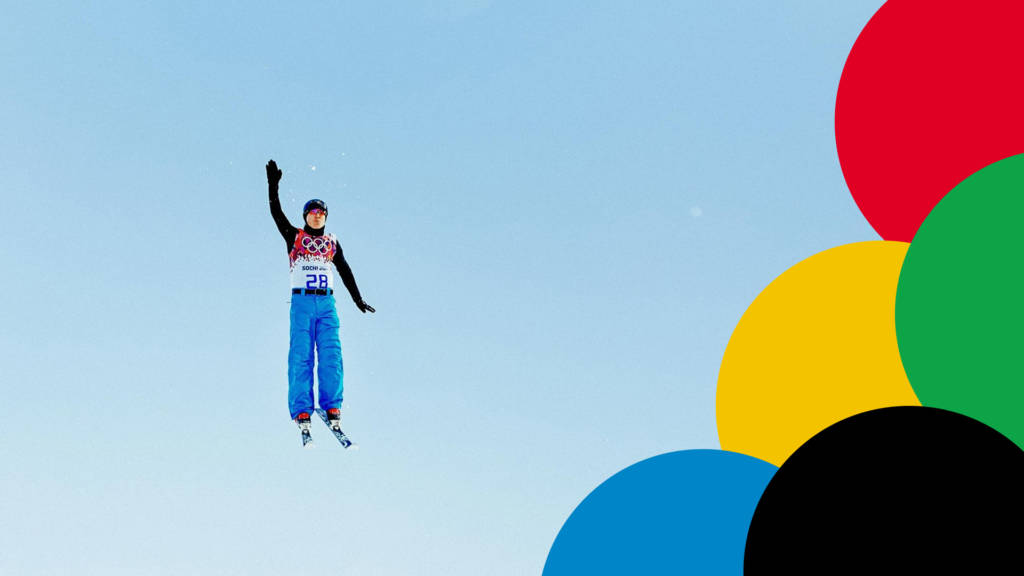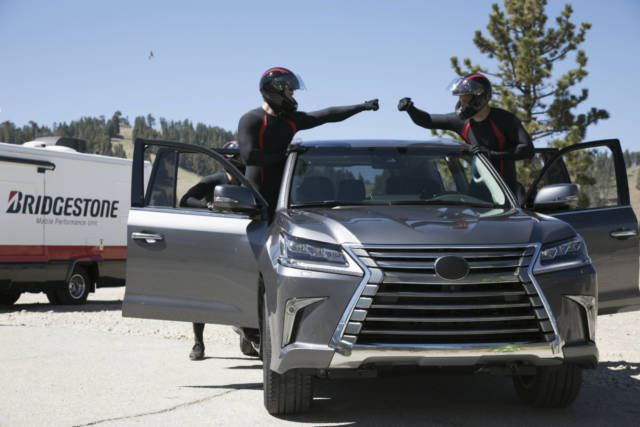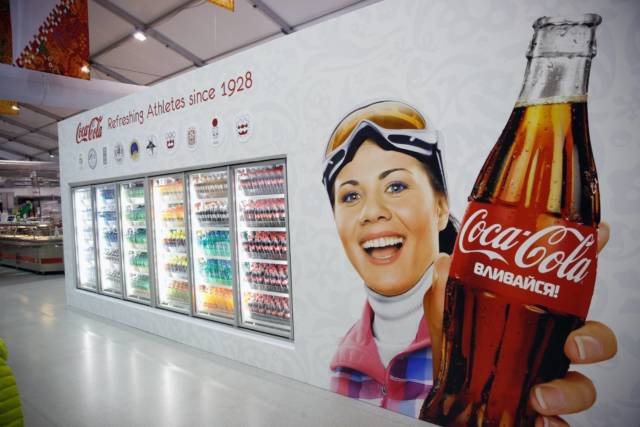The Olympics serve as one of the most visible global marketing stages for brands that have budgets to splurge, and the 2018 Winter Olympics in PyeongChang, South Korea is an 18-day sports showcase giving sponsors a platform to introduce and emphasize particular verticals from their brand’s portfolio.
The spirit of the games also aligns with 360-degree brand marketing missions that support athletes and competition with human progress.
“The Olympics are a special moment in time where the world comes together to celebrate human achievement,” Alex Chang, head of sports marketing for Samsung Electronics America, told AListDaily. “It provides both a global and local platform for our brand to engage with consumers, which is immensely valuable. Our primary goal is to drive brand engagement, whether that be through digital content featuring Olympians or experiential activations showcasing our technology.”
In addition to Samsung, the other 10 official sponsors in the Olympics Partner Program this year include Coca-Cola, Alibaba Group, Intel, Bridgestone, P&G, Panasonic, Visa, Toyota, Omega and The Dow Chemical Company.
Making The Marketing Leap To A Global Stage
For a brand like Bridgestone, the tire marque has partnerships across many sports, including the NFL centering on the idea of “Clutch Performance.” But for the PyeongChang Games, the brand is activating what it’s labeling as the first truly global marketing platform in company history.
“We believe in the power of sports to unite, excite and inspire people across all borders—and there’s no better example or bigger platform for that than the Olympic Games,” said Philip Dobbs, CMO for Bridgestone Americas. “Our worldwide partnership is a strategic global investment designed to push our business forward, showcase our commitment to being an outstanding corporate citizen and tell our brand story.”
Dobbs said the Olympics provide the brand “incredible” marketing value because Bridgestone has goals during the games to grow business in both new and existing markets.
“We know brand awareness and reputation are determining factors in brand preference and choice for consumers, and the Olympics offer a powerful platform for quality engagements with consumers,” Dobbs said.
Bridgestone began its marketing journey in the summer by announcing Team Bridgestone USA and by striking a union with US Figure Skating for its first federation partnership. By November, the brand had already launched the marketing campaign across television, social media, in-store touchpoints and the digital brand experience “Bridgestone Performance Institute” featuring Olympic and Paralympic athletes Amy Purdy, Ashley Wagner, Elana Meyers Taylor, Erin Jackson, Evan Strong and Nathan Chen.
The marketing was also recently complemented with an Olympic-themed retail promotion, honoring the parents who drive the dreams of young athletes as well as with an onsite activation program in South Korea that hits on a series of marketing, athlete and education initiatives.
“The partnership provides opportunities to engage directly with fans around their passion points—to educate them not only about our innovative products and technologies but also about what we stand for as a company,” said Dobbs.
In addition to accumulating marketing cache, attaining shared value and a competitive advantage to perhaps be leveraged across their targeted regions, Dobbs said Bridgestone is likewise committed to leaving a positive legacy in each Olympic host city and wants to use their Olympic partnership to engage its 140,000 employees around the world.
“We learned a lot at Rio 2016, our first-ever Olympic Games,” said Dobbs. “Now our company can leverage the Olympic rings in more than 200 countries worldwide.”
Stick To Sports—Not Social Issues
Albeit mostly reserved for athletes, the Olympics also serve as a podium for those that choose to comment on social issues. When sponsors were asked if they will be taking any specific stances related to the current social climate in the world, especially in the US with the #MeToo movement, diversity and other social issues—marketers offered a mixed bag of responses.
Ricardo Fort, VP of global sports partnerships for Coca-Cola, said the company will not be using the games for any messaging other than amplifying the marketing around the “pleasure of drinking Coca-Cola.”
Coca-Cola instead used the Super Bowl stage this year to talk about diversity with a 60-second ad featuring people of different races, nationalities and geographic regions. The message was clear—that Coke is “for everyone,” as one person in a wheelchair took part in a daredevil-like athletic contest.
“The Olympic Games have become an important part of how we talk about our brand,” Fort said. “The Olympics are recognized for being very inclusive, it’s something that our company and brand stand for. Each company needs to consider their brand values and stance on certain issues.”
“The Olympic Games have become an important part of how we talk about our brand. The Olympics are recognized for being very inclusive, it’s something that our company and brand stand for. Each company needs to consider their brand values and stance on certain issues.”—Ricardo Fort, VP of global sports partnerships for Coca-Cola
Samsung is using their brand marketing position, “Do What You Can’t,” to “support anyone who faces barriers and has the courage to overcome them,” Chang said. Samsung is sponsoring Team USA members Chloe Kim (snowboarding), a first-generation Korean-American whose parents immigrated to the US to realize their American dream, and Gus Kenworthy (freestyle skiing), who is competing in his first Olympics since coming out.
Dobbs said Bridgestone will be operating under the message of “Chase Your Dream,” which aims to empower people everywhere to overcome adversity and persevere in pursuit of their goals.
“The spirit of the Olympic movement is all about bringing people together in celebration of sport—and the Olympics present a unique opportunity to support sport as an agent of positive social change,” Dobbs said. “We respect and recognize that there are an array of important topics generating conversation today, and very much look forward to honoring the sense of peace and unity that the world comes together to celebrate every Olympiad.”
Stephanie Joukoff, Intel’s director of Olympics marketing, said that the brand won’t take a stance on any issues outside of sports because “our platform is about delivering amazing experiences through Intel technology, and helping fans experience the games like never before.”
Intel, a long-term technology partner through the 2024 Olympics, is instead looking to offer a glimpse of the future for the games through “Experience the Moment,” which is highlighted by 30 live and on-demand virtual reality experiences. The brand is also looking to flex its marketing muscles in esports, drones and 5G, while further engaging B2B prospects and customers.
“Our primary goal is to accelerate the adoption of leading technologies through this amazing global platform and ultimately, drive growth to our business,” said Joukoff.
Intel’s partnership is rooted in the idea that technology can transform the Olympics experience for fans and athletes alike. Joukoff said this is a unique opportunity that extends beyond a traditional sponsorship and allows Intel to integrate it’s tech into the games.
“Success for us is bringing new, amazing experiences enabled by Intel technology to the games, which will drive growth for Intel,” Joukoff said. “This is our first Olympics sponsorship, so we will be using this opportunity to test and learn for the next few games.”
A Message For The Non-Sponsors
Once the Olympics get underway and competition reaches its crescendo, brands and social media managers alike may get patriotic and be tempted to offer congratulatory salutations to athletes, perhaps even joining in on an official hashtag or two in celebratory revelry.
However, unless your brand has a thing for lawsuits, marketers from small, medium and large companies should think twice before wishing to provide social media commentary. In fact, they should stay away from anything that suggests authorization, sponsorship or an official connection to the Olympics altogether, according to Fara Sunderji, a partner at international law firm Dorsey & Whitney who advises brands in the development marketing of campaigns.
Similar to how the NFL protects its trademark for the Super Bowl that forces brands to generically refer to it as the “Big Game,” the International Olympics Committee (IOC) and the United States Olympic Committee (USOC) are enforcing “Rule 40” in order to protect the value it brings to the official sponsors that sign steep checks. This includes prohibiting unofficial sponsors from using the Olympic rings, the official logo, the official mascot or hashtags incorporating trademarked terms in connection with commercial promotions.
“Excluding the official sponsors and the brands that got Rule 40 waivers, the best guidance is to be careful,” said Sunderji. “You can’t directly or indirectly associate your brand with the Olympics. At the same time, you can take advantage of it. It just requires creativity, like stars-and-stripes imagery conjuring the ‘home’ team or imagery of selective sports that are popular. It depends on the excitement, and where your brand fits in.”
“Excluding the official sponsors and the brands that got Rule 40 waivers, the best guidance is to be careful. You can’t directly or indirectly associate your brand with the Olympics. At the same time, you can take advantage of it. It just requires creativity”—Fara Sunderji, a partner at international law firm Dorsey & Whitney
Sunderji said unauthorized brands cannot use #TeamUSA, #Olympics #GoForTheGold #PYEONGCHANG 2018 or any other USOC branded hashtags. Both committees have pages of guidelines and rules to sift through that outline the policy, she said, which trickles all the way down to athletes, who cannot share videos on their personal social channels showing the “field of play.”
One brand that has already carried the creative torch and carefully stepped around policies is Planet Fitness. The gym franchise operates a location near Olympia, Washington, and it released a social media video that promotes the business and depicts real “Olympians” from the state capital.
A brand like Ralph Lauren, which secured a deal with the USOC to introduce a wearable heat concept integrating fashion and apparel innovation, is not dealt the same hand as other unofficial sponsors. The same goes for The North Face, which has a deal in place as an official competition uniform partner for the US Ski, Freeski and Snowboard teams under the marketing mantra “Never Stop Exploring.”
“Social media posts are a form of advertising,” said Sunderji. “If you have a branded social account, more likely than not [the posts] are considered advertising. What you can say and do on that account is much different than what individuals can from their personal accounts, so be creative, and careful.”
The Lines Between B2C, B2B Sponsors Begin To Blur
One of the trends that Fort and his cohorts at Coca-Cola, an Olympics sponsor since 1928, are particularly monitoring this year is the shift between Olympics partners who are promoting to consumers, and the ones of which are B2B sponsors.
Sponsors like the Alibaba Group, Intel, Bridgestone, Panasonic, Samsung and The Dow Chemical Company all operate in B2B capacities.
“Sponsorships and marketing is our bread and butter—we do it every day. But I’m interested to see how this particular Olympics will play out from a consumer-first, marketing communications standpoint,” said Fort. “Coca-Cola is a meaningful part of people’s lives, and because of that, they feel more attracted to the brand. We can drive the growth of our business and sports partnerships because of this.”
From the IOC, FIFA, European soccer clubs and other international leagues, Fort, who led the task of defining Coca-Cola’s Olympics marketing strategy, negotiated contracts and made sure rights were delivered, said there has been an overall industry-wide shift in sports from B2C sponsors to B2B.
“The profile is changing, and it could affect the engagement of people in many countries,” said Fort. “It will particularly be interesting and critical for us to see how that changes the way regular people consume the Olympics and other global events.”
In the meantime, Coca-Cola will focus on the strategy at hand with more than 200 executives from marketing, sales and respective agencies that are tasked with handling the execution at scale. The total beverages company has had a specific Olympics-based team in South Korea dedicated to the marketing development of their sponsorship for the last three years.
Fort said the months leading up to an event like the Olympics are just as important as the marketing executions during it. Coca-Cola relies on its analytics partners to measure the impact of their marketing spend based by countries, which include how many customers are promoting its brands, referencing an internal tracker for their brand image, the conversations that are being created in social media, and all the way across to sales volumes.
“We see a lot of impact in our business in a larger window in the months leading up to the event, and of course during it too,” he said. “Consumers pay more attention to our marketing, they like the brand more and they drink more of our products.”
One brand in particular that will likely not strike any chords with consumers, yet, is still making a strong push at the Olympics as a sponsor is The Dow Chemical Company. The Michigan-based B2B multinational chemical corporation is using the Olympics as a platform to demonstrate its materials, scientific acumen and sustainable solutions.
Although the company is not sponsoring Olympics athletes, it’s the official technical partner of the USA Luge team, using science to help the team redesign their competition sleds. The brand’s solutions will also be found in various Olympic venues, like precision temperature management of ice rinks, waterproofing coatings, insulation and sealants in buildings and also in the paint used to mark the Olympic Lane from Seoul to PyeongChang.
“We’re seeing excellent marketing results across our areas of focus,” said Louis Vega, VP of Olympics and sports solutions for The Dow Chemical Company. “Our investment in these areas has proven to be quite successful across our business units.”
From a B2B marketing stance at the Olympics, Vega said Dow brings business revenue impact while showing its science and solutions; it’s applied across industries and geographies and reaches new audiences to grow market share.
Another B2B Olympics sponsor that has C2C and B2C sprinkled in its company DNA is the Alibaba Group. The Chinese multinational conglomerate is looking to leverage the games as the ultimate platform to drive awareness and engagement for both its core-and-emerging audiences.
To do that, the company is debuting “To the Greatness of Small,” its first advertising campaign at such a scale to share the story of its brand ethos since being founded 19 years ago. The marketing hits on the narrative of Alibaba’s brand positioning of supporting small businesses and using their tech to help “underdogs” succeed in global marketplaces.
“We see the Olympics as an unprecedented platform to build brand awareness, connect with new audiences and demonstrate the impact of our technologies and innovations—when the entire world is watching,” said Alibaba Group CMO Chris Tung. “There’s tremendous value in leveraging our relationship with the games to showcase our technology and innovation to a global audience.”
Alibaba’s company mission is to serve two billion consumers and support 10 million merchants and small businesses around the world. Tung said their Olympics partnership supports their global goals and will help accelerate plans to reach those lofty ambitions.
The IOC also turned to Alibaba to help transform the games for the digital era by using their cloud technology. Tung said the partnership allows for the brand to share their tech and demonstrate to small and medium-sized enterprises, start-ups and businesses how the Alibaba Cloud helps other businesses.
Alibaba had a similar presence earlier this year at CES in Las Vegas by sharing its ecosystem of AI, IoT and cloud-powered tech.
“We’re focused on using PyeongChang as an opportunity to listen, learn and build relationships that will ensure the success of our long-term strategic alliance with the IOC and the Olympic family,” said Tung. “While we’re expanding awareness and understanding for our brand, we also hope to inspire Olympic fans around the world to achieve their own greatness, no matter how small their dream might be.”



